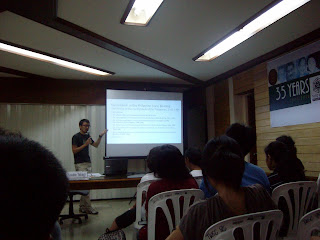Nationalism and the Colonial State Building, 1872-1933:
A Round Table Discussion with Yusuke Takagi
Tuesday 13 August 2013 from 2:30 p.m. – 4:00 p.m
TWSC, Lower Ground Floor, Palma Hall, UP Diliman, Quezon City
The University of the Philippines Third World
Studies Center (UP TWSC) will hold a round table discussion (RTD) with Visiting
Research Fellow Mr. Yusuke Takagi from the Graduate School of Law at Keio
University, Japan. Please see details below.
About the speaker
Yusuke Takagi was a
researcher /advisor of Embassy of Japan in the Philippines. Before working as a researcher for the
Embassy, he completed the course work for his PhD in the Graduate School of Law
(Political Science), Keio University. He
graduated from the faculty of law (Political Science), Keio University in 2004
and finished his master in the Graduate School of Law, Keio University in
2007. He has been interested in
Philippine politics since his undergrad.
About the topic
The Central Bank of the Philippines led by Governor Miguel P. Cuaderno (1949-1960) was esteemed as “an island of state strength in an ocean of weakness [of state capability]” because of its impressive role in economic policy making and management. The island of state strength is a metaphor used to represent an administrative institution, which seeks for not special but national interests making use of expertise of professionals. The bank implemented the development policy through the allocation of the foreign exchange to encourage industrialization, which created the “golden age of manufacturing” in the 1950s.
While the writer studies the development of the politics of the Central Bank of the Philippines from the very first attempt to make a central bank in 1933 to the changing development policy regime in the early 1960s, this presentation revisits the historical development of the Philippine colonial state building from 1872 to 1933. Recent studies on intellectual history from the late Spanish colonial period and the colonial state under the American rule cast doubt on the assumption that the intellectuals lost their influence in the American colonial period or that the Philippine state did not develop enough to suppress the influence of oligarchs. These findings suggest a possibility to revise our understanding on the colonial state building as a foundation of the subsequent political dynamics which was not necessarily limited to history of the weak state. By revisiting the recent works on politics, this presentation aims at providing the necessary background in studying the politics of the central bank from the 1930s.
Photos from the event
Photos from the event






No comments:
Post a Comment